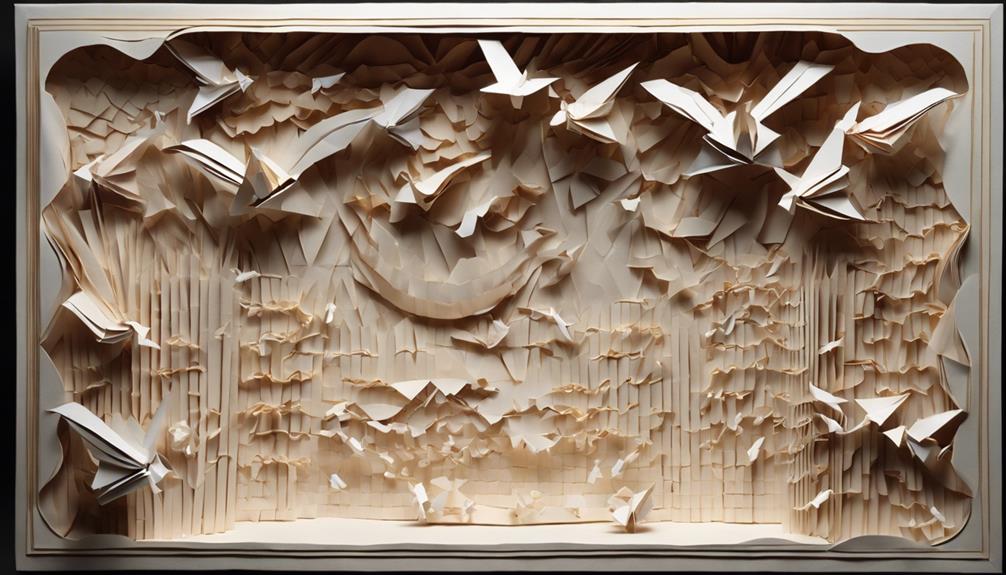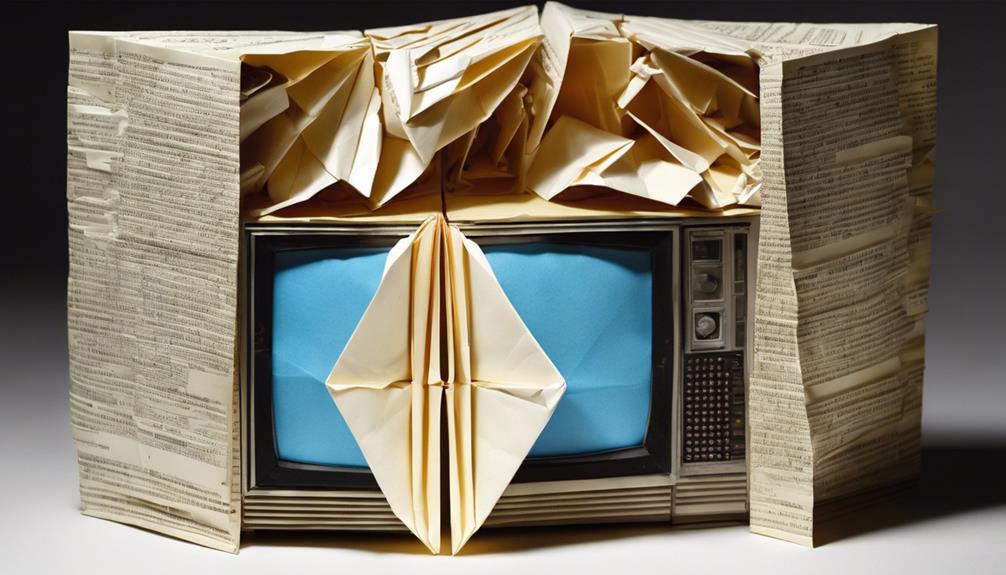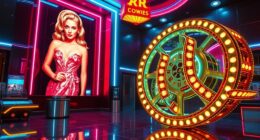Movie enthusiasts, brace yourselves for mind-bending fan theories that uncover hidden connections and reshape beloved stories. From the notion of 'Breaking Bad' sparking the zombie apocalypse in 'The Walking Dead' to Sandy's potential demise in 'Grease,' these theories explore uncharted territories. What if Jack from 'Titanic' was a time traveler, or the characters in 'Always Sunny' were master deceivers? Each theory adds intricate layers to familiar narratives, challenging viewers to see these movies in a whole new light. Prepare to discover a treasure trove of insights that will forever alter your perspective on these cinematic gems.
Key Takeaways
- Breaking Bad's blue meth caused zombie outbreak in Walking Dead.
- Sandy's death hinted in Grease, altering character dynamics.
- Jack from Titanic speculated as a time traveler with hidden clues.
- Grease's hidden symbolism suggests darker narrative and character arcs.
- Always Sunny characters' deception blurs truth, showcasing manipulative tendencies.
Breaking Bad as Walking Dead Prequel
Fans have explored that Breaking Bad may serve as a prequel to The Walking Dead, linking the two shows through a unique theory involving Walter White's blue meth. This intriguing fan theory suggests that the blue meth created by Walter White in Breaking Bad could be the catalyst for the zombie apocalypse seen in The Walking Dead.
The theory posits that the consumption of this tainted meth could have triggered a virus or mutation leading to the outbreak of the undead. Fans investigate the connections between characters and events in both series, weaving a complex narrative that intertwines the two storylines in unexpected ways.
Sandy's Death in Grease
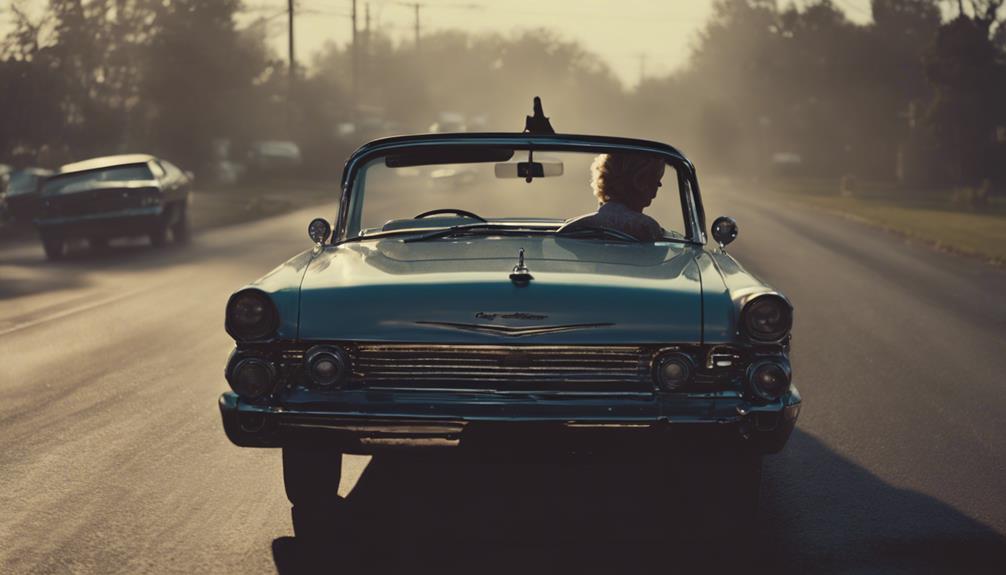
In the world of Grease fan theories, one particularly intriguing concept suggests that Sandy may have met a tragic end early on in the film. This theory posits that subtle hints in the lyrics of 'Summer Nights' hint at a darker fate for the character.
Hidden Symbolism in Sandy's Death
Throughout the movie Grease, subtle clues and hidden symbolism suggest that Sandy was actually dead, adding a dark twist to the beloved musical. The Sandy's death theory proposes that underlying themes in the film hint at Sandy's demise, challenging the conventional interpretation of the storyline.
Fans have dissected various scenes, pointing to instances like Danny's reference to Sandy drowning in the song 'Summer Nights' as evidence supporting this theory. This hidden symbolism in Sandy's death theory not only intrigues audiences but also alters the perception of Grease's narrative, transforming it into a more mysterious and complex tale.
Impact on Character Development
The theory of Sandy's death in Grease greatly impacts the character development within the film, reshaping the perception of her interactions with Danny and the overall narrative dynamics.
If Sandy were truly deceased from the outset, her presence throughout the movie takes on a haunting quality. This tragic fate adds a layer of depth to her character, casting a somber shadow over her interactions with Danny.
The theory suggests that Sandy's moments with Danny could be viewed as manifestations of his grief or guilt, rather than actual events. By considering Sandy as being in a coma or fantasy state, her character development becomes intertwined with Danny's internal struggles and emotional turmoil.
This alternative interpretation challenges the traditional understanding of their relationship and the dynamics of the storyline, presenting a darker and more complex narrative that alters the way audiences perceive the characters' journey in Grease.
Audience Reactions Analyzed
Audience responses to the theory of Sandy's death in Grease ranged from shock to disbelief, sparking lively debates among movie enthusiasts. Many fans were surprised by the dark interpretation of Sandy's fate in the movie Grease.
The theory of Sandy being dead the whole time added a new layer of complexity to the film, intriguing some viewers. This speculation led to a deeper examination of the movie's themes and symbolism, provoking discussions on hidden meanings within the storyline.
Some fans found the theory of Sandy's death unsettling but thought-provoking.
Others dismissed the idea as far-fetched and inconsistent with the overall tone of the movie.
Movie enthusiasts scrutinized the film's scenes and dialogues to uncover clues supporting or debunking the theory.
The divide in audience reactions highlighted the subjective nature of interpreting ambiguous plot points in movies.
Jack From Titanic: Time Traveler
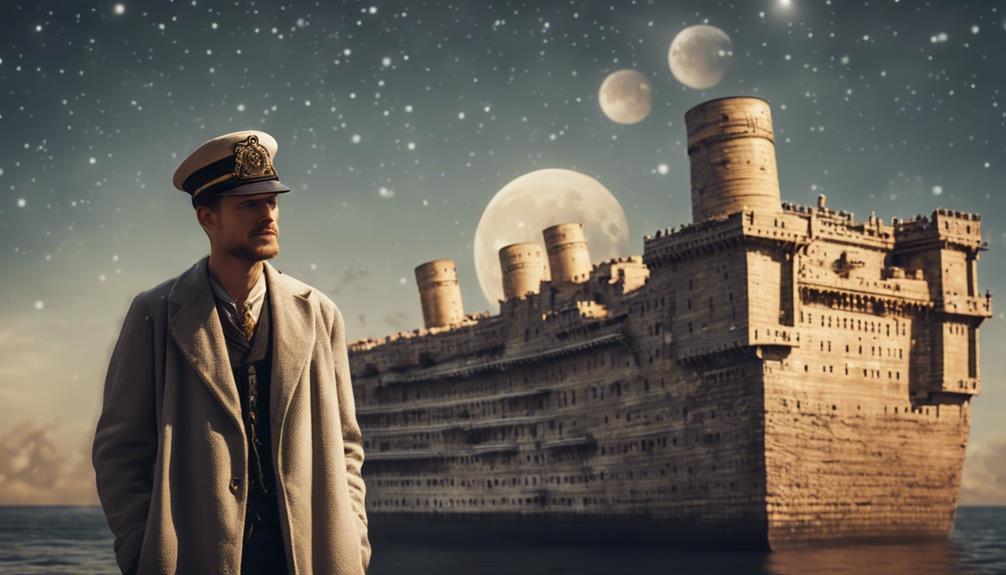
Some Titanic enthusiasts propose a fascinating theory: Jack may have been a time traveler. This speculation hinges on hidden clues scattered throughout the film that hint at Jack's potential knowledge of future events.
From a mysterious time device to subtle references in Rose's memories, fans point to various elements that support the idea of Jack altering time travel events to save Rose.
Jack's Hidden Time Device
A popular fan theory proposes that Jack from Titanic might've possessed a hidden time device, allowing him to potentially manipulate time. This intriguing concept suggests that Jack's actions in the movie could have been influenced by his ability to travel through time.
While this theory may seem far-fetched, it adds a new layer of complexity to the character and storyline of Titanic. Here are some key points to ponder:
- Some fans believe that Jack's hidden time device enabled him to revisit critical moments in the past.
- The idea of Jack having time-travel abilities raises questions about the nature of his relationship with Rose.
- Speculation about Jack's time-travel capabilities has sparked lively debates among fans of the movie.
- Exploring the possibility of Jack being a time traveler offers a fresh perspective on the events that unfold in Titanic.
Clues in Rose's Memories
Rose's fragmented memories in Titanic subtly hint at Jack potentially being a time traveler. Throughout the film, fans have noticed inconsistencies in Rose's recollections of Jack, leading to speculation about a deeper, time-traveling narrative.
One key aspect supporting this theory is Jack's knowledge of future events and technologies that seem out of place for the era in which Titanic is set. These clues, embedded in Rose's memories, suggest a possible link to time travel.
The idea of Jack as a time traveler adds a fascinating layer to the classic love story portrayed in the film. By examining Rose's memories through the lens of Jack being a time traveler, viewers can gain a fresh perspective on the iconic scenes and interactions between the two characters.
This interpretation invites audiences to explore alternative explanations for the characters' actions and the unfolding of their relationship in the movie.
Altered Time Travel Events
Exploring the theory of Jack from Titanic as a time traveler alters the perception of key events in the movie. This fan theory suggests that Jack was sent back in time to save Rose, leading to altered time travel events throughout the storyline. Supporters of this idea highlight inconsistencies in Jack's background and actions, indicating a deeper motive behind his presence on the Titanic.
By viewing the film through the lens of Jack being a time traveler, viewers are challenged to reconsider the sequences of events with a changed perspective. This theory adds a layer of complexity to the narrative, inviting audiences to analyze the storyline in a new light.
The theory proposes that Jack's actions are meant to alter time travel events. Supporters point to inconsistencies in Jack's background and actions. This perspective challenges viewers to reconsider the movie's events. It adds a new layer of complexity to the narrative of Titanic.
Always Sunny Characters Deception

Amidst the chaotic antics and absurd schemes of the Always Sunny characters, their deceptive nature shines through as they navigate a world of manipulation and self-serving agendas. Portrayed as unreliable narrators, each character's questionable behavior and motives contribute to the overall theme of deception within the show.
Viewers are constantly left to explore the truth amidst the characters' manipulation, adding layers of complexity to the narrative. The dark humor of the series often blurs the line between truth and fiction, challenging audiences to discern the reality behind the facade of the characters' actions.
Through intricate storytelling and nuanced character development, Always Sunny navigates the murky waters of deceit, showcasing the lengths to which individuals will go to achieve their goals. The characters' penchant for manipulation and their willingness to bend the truth highlight the morally ambiguous nature of the show, inviting viewers to question the authenticity of each character's perspective.
Scooby-Doo: Draft Escape Plan

Some fans speculate that the beloved Scooby-Doo gang's adventures weren't just about solving mysteries but also served a covert purpose – avoiding the draft.
The theory suggests that the gang staged haunting mysteries to outsmart authorities and stay out of the army, adding a dark and complex layer to the classic cartoon.
This unique perspective raises questions about Scooby's secret identity, the origins of the Mystery Machine, and the true motives behind the villains they unmasked.
Scooby's Secret Identity
The fan theory surrounding Scooby-Doo's secret identity as a government experiment draft escape plan adds a compelling twist to the beloved character's origins. According to this intriguing hypothesis:
- Scooby-Doo is believed to have been created as part of a classified government project aimed at developing innovative strategies for avoiding the draft.
- The Mystery Gang, including Scooby, was supposedly involved in a covert operation tasked with testing draft evasion techniques.
- This theory offers a plausible explanation for Scooby's remarkable intelligence and his surprising ability to operate the Mystery Machine.
- Fans speculate that the gang's frequent travels and mystery-solving escapades were actually part of their specialized training regimen.
Mystery Machine Origins
Upon closer examination, the origins of the Mystery Machine in Scooby-Doo seem to intertwine with the intriguing fan theory of a conversion escape plan. Originally a police van acquired by Shaggy's parents, this repurposed vehicle became the centerpiece of the gang's mystery-solving escapades.
The conversion from a law enforcement vehicle to a colorful symbol of sleuthing prowess highlights the movie's theme of transformation and reinvention. The Mystery Machine's unique design, complete with psychedelic patterns and bold colors, not only reflects the gang's quirky style but also adds an element of mystery and intrigue to their adventures.
Fans have marveled at the van's evolution, pointing out how its modifications align with the gang's mission to uncover the truth behind various puzzling cases. By delving into the origins of the Mystery Machine, viewers gain a deeper appreciation for the attention to detail and creativity that went into shaping this iconic vehicle in the world of Scooby-Doo.
Villain's True Motive
Delving into the fan theory of a draft escape plan in Scooby-Doo sheds new light on the villains' true motives. In this theory, the villains are portrayed as masterminds concocting overly complex schemes not to commit crimes, but to evade receiving draft notices.
This reinterpretation of the classic animated series adds a new layer of humor and depth, showcasing the creative imagination of fans in analyzing the show's characters. By examining the villains through the lens of an elaborate draft escape plan, fans have reevaluated their motives and actions, seeing them in a different, more sympathetic light.
- The fan theory suggests that the villains in Scooby-Doo have an elaborate draft escape plan.
- Villains in the show set up overly complex schemes to escape draft notices.
- This theory adds a new layer of humor and depth to the classic animated series.
- Fans analyze the villains' motives and actions in a new light through this theory.
The Simpsons: Family of Geniuses
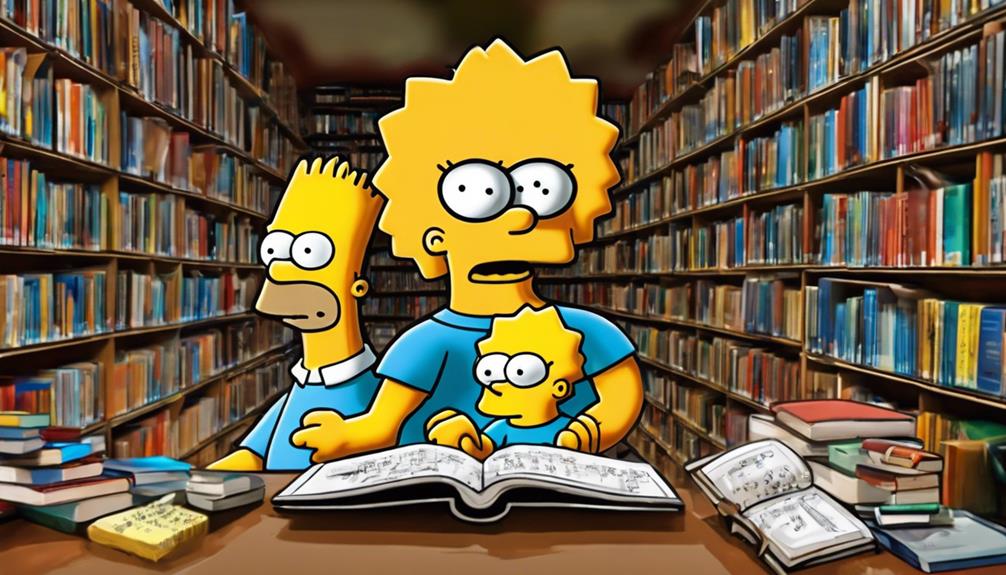
One popular fan theory proposes that characters in The Simpsons may actually be geniuses disguised as a dysfunctional family. Fans have speculated that within the comedic and satirical world of The Simpsons, there lies a hidden layer of intelligence and talent among the Simpson family members.
Details such as Lisa's exceptional intellect and Bart's occasional display of hidden talents support this intriguing theory. The show's creators have cleverly woven subtle hints of the characters' high levels of intelligence into various episodes, leaving fans to ponder the true nature of the Simpson family.
Despite their often chaotic and dysfunctional interactions, the members of the Simpson household may possess a collective genius that transcends their outward appearances. This theory adds a new dimension to the beloved animated series, inviting viewers to reexamine the characters' actions and abilities through a lens that sees beyond the surface of their everyday antics.
Rugrats in Angelica's Imagination
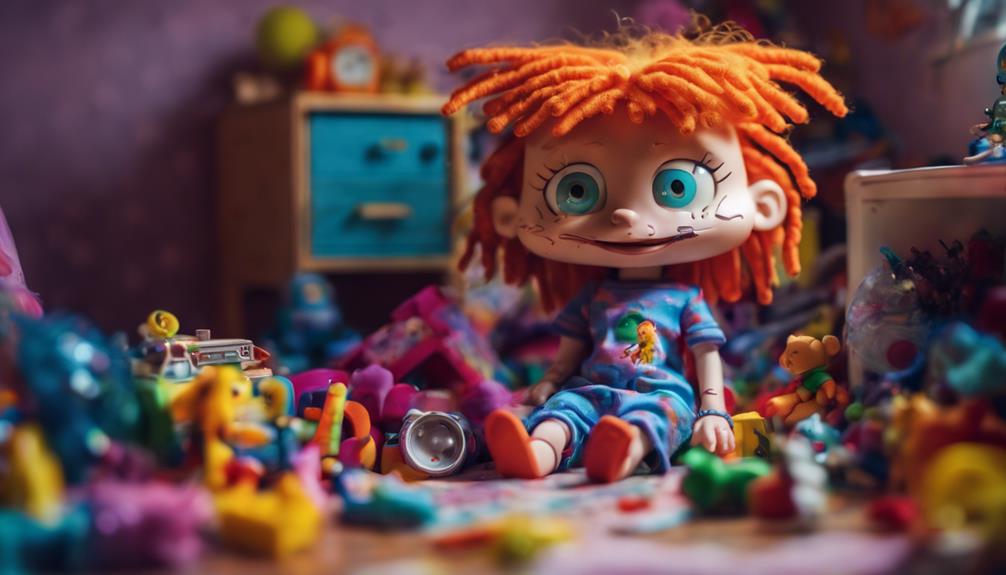
In the world of fan theories, an intriguing perspective emerges regarding the beloved children's show Rugrats. The theory suggests that the entire Rugrats series is a creation of Angelica's imagination, serving as a coping mechanism for her loneliness and neglect. This interpretation adds a dark and psychological layer to the show, revealing that the characters in Rugrats represent different aspects of Angelica's personality and relationships in real life.
Fans speculate that Angelica's made-up world functions as an escape from her troubled reality, allowing her to explore her emotions through these imaginary interactions. This theory sheds new light on the dynamics between the babies and Angelica, highlighting the complexities of childhood and the impact of loneliness on a young mind.
The notion that Rugrats may exist solely within Angelica's imagination challenges viewers to reconsider the innocence of the show and to investigate further into the underlying themes of loneliness and imagination.
Aladdin: Peddler Is the Genie

The theory that enthralls Aladdin fans suggests that the peddler at the start of the movie is none other than the Genie in disguise. Fans speculate that the peddler's uncanny knowledge of the lamp and magical abilities hint at his true identity.
This theory adds an enthralling layer to the movie by intricately linking the peddler to the Genie's storyline. The peddler's playful mannerisms and subtle allusions to the Genie's powers further support this enthralling fan theory.
Aladdin enthusiasts have meticulously rewatched the film, scouring for subtle clues that the peddler is indeed the Genie in disguise. This interpretation offers a fresh perspective on the movie's opening scene, suggesting a hidden connection between the peddler and the all-powerful Genie.
While never explicitly confirmed by the filmmakers, the idea of the peddler being the Genie adds an exciting element of mystery and intrigue to the beloved classic.
Finding Nemo's Imaginary Nemo

Exploring the intriguing fan theory surrounding 'Finding Nemo's Imaginary Nemo reveals a thought-provoking perspective on the beloved animated film.
The theory suggests that Nemo might exist solely in Marlin's imagination, serving as a manifestation of his inner fears and desires. This interpretation adds a layer of complexity to the storyline, portraying Marlin's journey as a psychological coping mechanism rather than a physical quest.
Some key points supporting this theory include Nemo's exceptional abilities, such as reading English, which seem improbable for a young fish, and Marlin's overprotective nature, which could be a reflection of his own insecurities. Additionally, the idea questions the plausibility of a clownfish traveling vast distances and encountering such extraordinary situations.
Walter White's Malcolm in the Middle
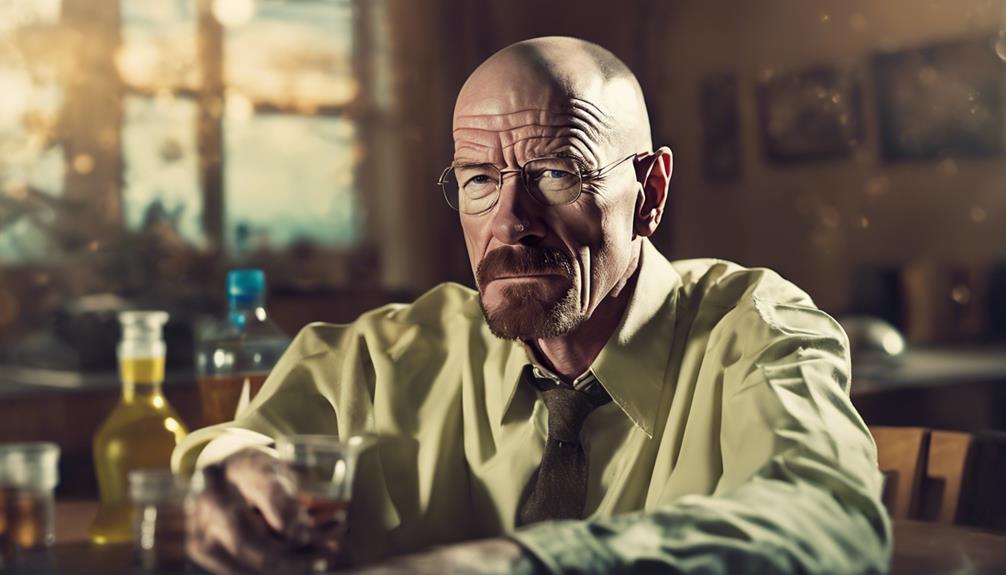
Amid speculation and fan theories, Walter White's connection to Hal from 'Malcolm in the Middle' offers an intriguing narrative twist. Fans have theorized that Hal, the quirky and lovable dad from 'Malcolm in the Middle,' could be a precursor to Walter White's transformation in 'Breaking Bad.' The theory suggests that after the comedic events of 'Malcolm in the Middle,' Hal adopts the alias Walter White and explores the dangerous world of meth production.
This speculation is fueled by the similarities in behavior, skills, and family dynamics between the two characters. Hal's hidden talents and occasional questionable decision-making mirror Walter White's descent into the criminal underworld. Connecting the dots between these two seemingly unrelated TV shows adds a new layer of depth and complexity to the characters of Walter White and Hal.
While this theory remains unconfirmed by the creators of the shows, it continues to spark fascination among fans, showcasing the creativity and imagination of viewers in weaving together disparate narratives.
Dexter's Family in Laboratory
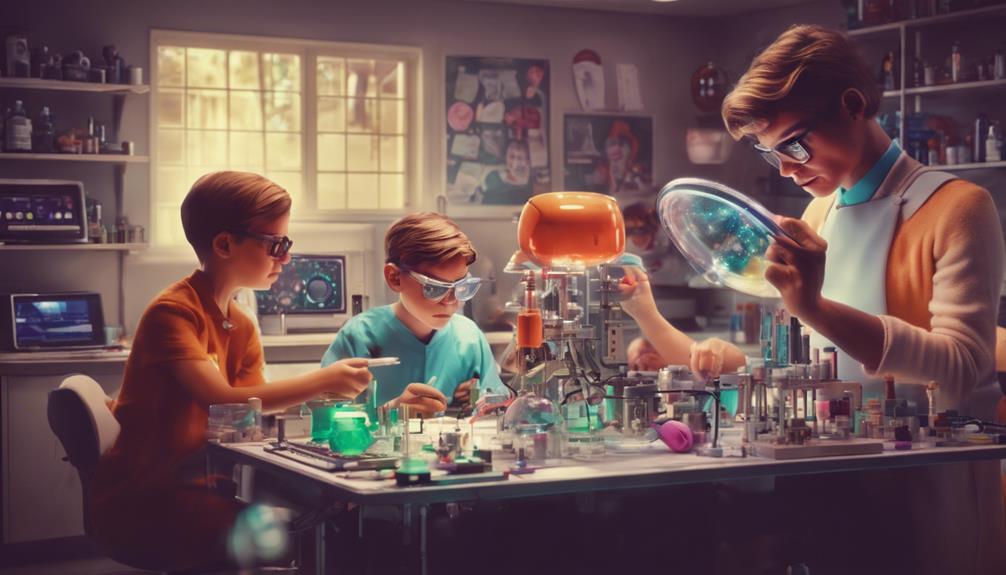
Within Dexter's Laboratory, fans speculate that his family exists as a creation of his imagination to cope with loneliness and isolation. This intriguing fan theory proposes that Dexter conjures up his parents and sister as part of an elaborate fantasy, questioning the reality of their existence within the show.
Dexter's interactions with his family members are viewed as manifestations of his subconscious desires for companionship, adding a dark and psychological twist to the beloved animated series.
- Dexter's family may be a figment of his imagination.
- Fans suggest that Dexter creates his family members to cope with loneliness.
- The theory questions the existence of Dexter's parents and sister.
- Dexter's interactions with his family are seen as manifestations of his subconscious desires for companionship.
Pokémon's Post-War Society

In the domain of fan theories surrounding beloved animated series, the Pokémon Post-War Society theory posits a fascinating scenario that suggests a darker history within the Pokémon universe.
This theory revolves around the idea that the Pokémon world might've been embroiled in a significant conflict before the events depicted in the games and anime. Fans speculate that this Pokémon war theory could explain the absence of adult male figures in the series and the prevalence of younger trainers.
It explores the societal impact of a past conflict on the Pokémon world and its inhabitants, examining the potential dark history and consequences of a war that potentially shaped the current state of the Pokémon universe.
Frequently Asked Questions
What Is the Tarantino Theory?
The Tarantino Theory posits that Quentin Tarantino's films share an interconnected universe. Characters, events, and references from movies like 'Pulp Fiction,' 'Reservoir Dogs,' 'Kill Bill,' and 'Inglourious Basterds' intertwine to create a cohesive world.
What Are Fan Theories?
Fan theories are speculative interpretations that fans create to explore hidden meanings, character motivations, and plot twists in movies and TV shows. They range from simple observations to elaborate theories, sparking engaging discussions among fans.
What Is Apparatus Theory in Film?
Apparatus theory in film explores how filmmaking tools like cameras and sound affect audience perception. It investigates how the creation and presentation of a film shape viewer experience, enhancing their understanding and engagement with the narrative.
What Is the Theory Behind From?
The theory behind 'From' suggests that the blue pill may actually be poison, not a return option. It proposes that those desiring control could transform into agents, while the red pill is viewed as a tracking program, offering a new perspective on its purpose.
Conclusion
To sum up, these fan theories may offer a new perspective on your favorite movies, but let's not forget that they're just that – theories.
While it's fun to speculate and imagine alternative storylines, it's important to remember that the creators of these films had their own intentions and visions in mind.
So, next time you watch a movie, enjoy it for what it's and leave the fan theories to the imagination.

